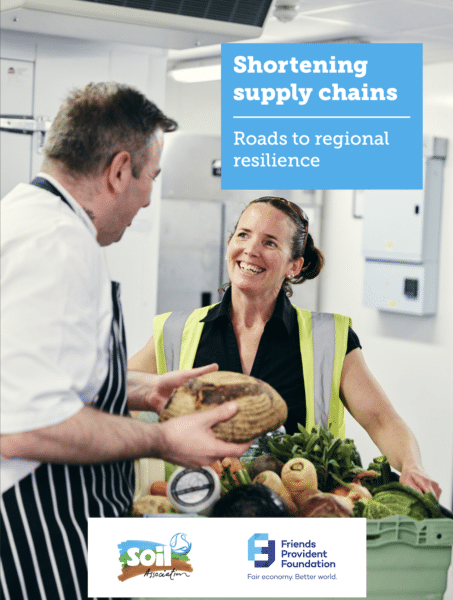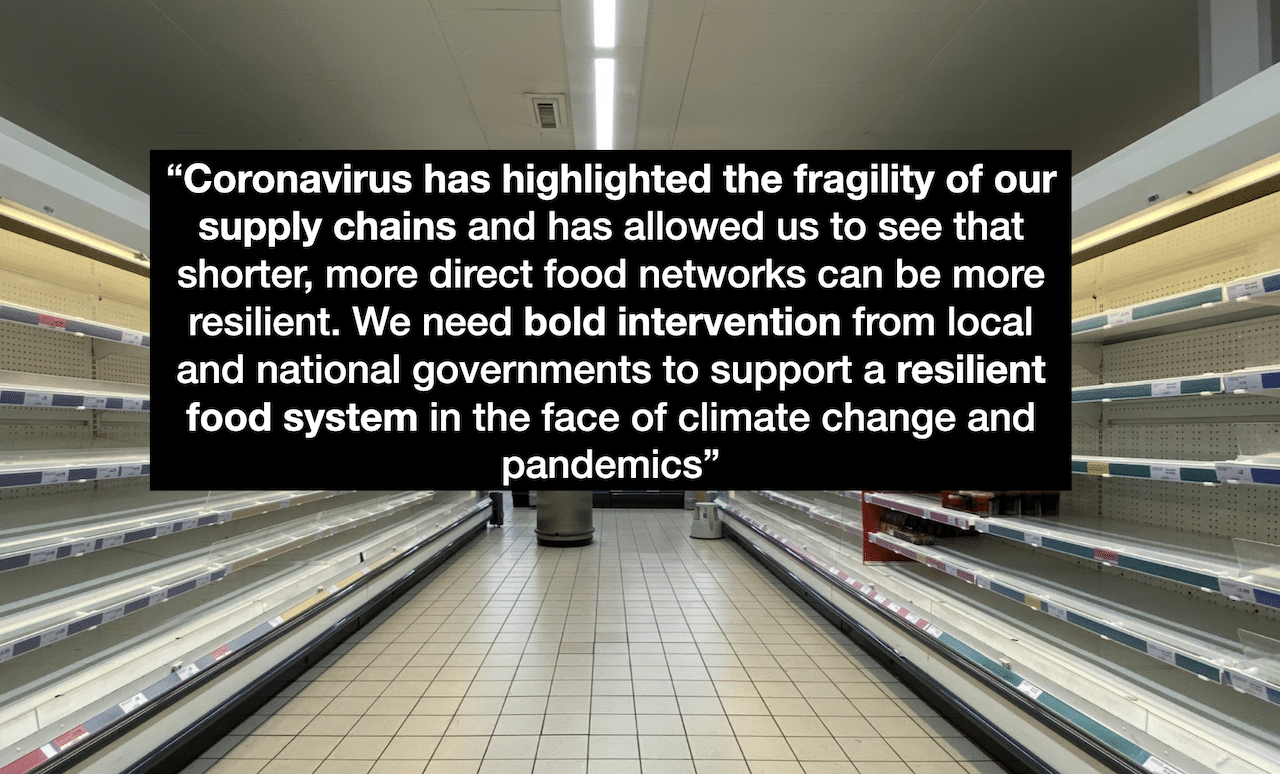The COVID-19 pandemic and climate crisis together highlight the urgent need for shorter food supply chains, says a new report from the Soil Association.
With COVID-19 exposing cracks in our food system, the Shortening Supply Chains; Roads to Regional Resilience report looks at innovative farmers, businesses and councils already proving sustainable sourcing can be more resilient as well as more environmentally friendly.
The report sets out that local and national government have key roles to play in incentivizing regional and more sustainable production through redirecting the £2 billion spent annually on public sector food.
It recommends re-writing public procurement regulations to allow a wider range of suppliers, no matter their size, to have flexible access to food contracts in places like schools and hospitals. And it calls for a phasing out of the practice of having many fixed, high volume contracts with one large provider, which can lock out smaller and regional businesses.
 Organic farmer Adrian Steele, one of the authors of the report and organic sector development advisor at the Soil Association, says: “Coronavirus has highlighted the fragility of our supply chains and has allowed us to see that shorter, more direct food networks can be more resilient. We need bold intervention from local and national governments to support a resilient food system in the face of climate change and pandemics.
Organic farmer Adrian Steele, one of the authors of the report and organic sector development advisor at the Soil Association, says: “Coronavirus has highlighted the fragility of our supply chains and has allowed us to see that shorter, more direct food networks can be more resilient. We need bold intervention from local and national governments to support a resilient food system in the face of climate change and pandemics.
“There are great examples already in the UK demonstrating that shorter supply chains can provide people with healthy and sustainable food sourced from their local area. But we also need the £2 billion being spent on food in schools and hospitals each year to be invested in a mix of businesses – both large and small – that are working to protect climate, nature and public health. We also need agricultural policy to reward farmers for nature-friendly, agroecological farming.”
The research, funded by Friends Provident Foundation, highlights ‘the lack of regulatory requirements for public sector organizations to source food that meets sustainability or regional sourcing requirements’. Best practice, the report suggests, is led by those involved with voluntary schemes such as the Government’s Balanced Score Card and the Soil Association’s Food for Life Served Here award.
The report also recommends investing in creating local ‘food hubs’ that can co-ordinate collection, packing and distribution of regionally produced food, to allow smaller producers to sell food to people in their area without incurring big delivery costs.
For more information and case histories, visit www.soilassociation.org/shortening-supply-chains-roads-to-regional-resilience.











